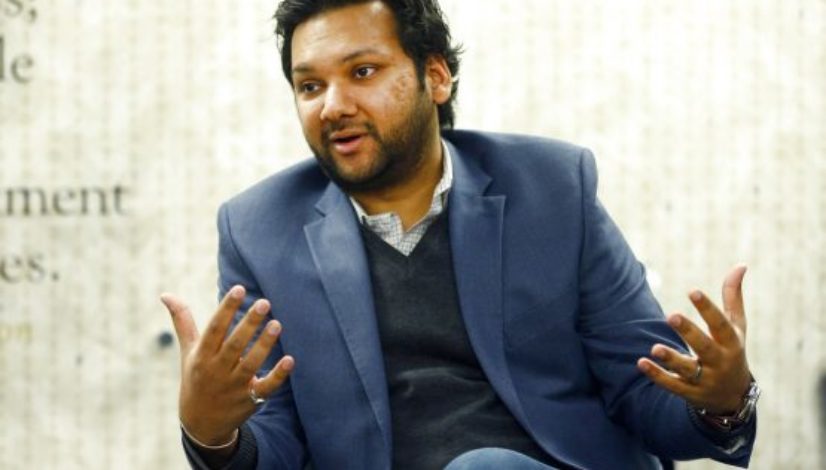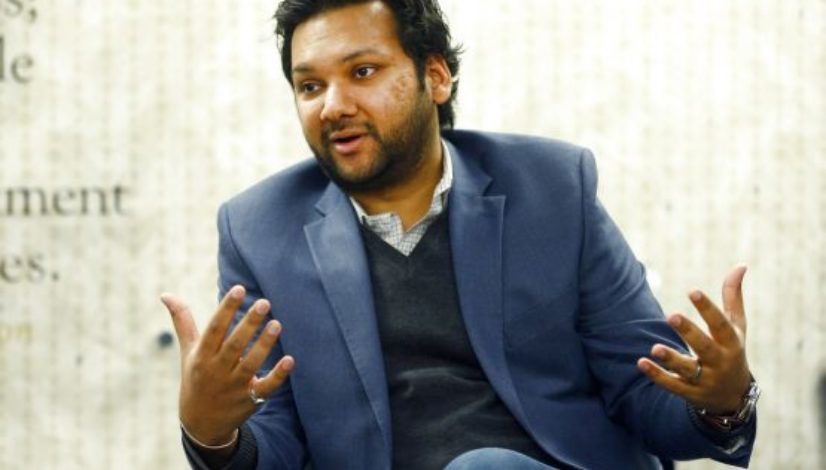ACLU leader: Legalizing marijuana a “racial justice issue”

Published: Dec 1, 2017, 11:15 am • Updated: Dec 1, 2017, 12:05 pm
By Bob Jordan, asbury Park Press
NEPTUNE, N.J. — The head of the American Civil Liberties Union of New Jersey says legalizing recreational marijuana would help fix “a racial justice issue and a civil rights crisis” because the war on drugs is disproportionately targeting black New Jerseyans.
“In New Jersey you are three times more likely to be arrested and convicted for marijuana possession if you’re black than if you’re white,” said Amol Sinha, the new state ACLU executive director. “Add that to the context of our racial disparity rates in the prison system in New Jersey. It feels like a compelling need to address this drug enforcement issue that is exacerbating not only disparities, but also costing an arm and a leg.”
With the election of Phil Murphy as governor earlier this month, legalizing pot was expected to a frontburner agenda item in Trenton. Murphy’s campaign included calling for legalization, both to end the disproportionate jailing of blacks but to also claim $300 million a year in taxes from a regulated market.
However, several lawmakers, including Democrats, have expressed concerns of late. “I think the devil is in the details,” said Assemblyman Craig Coughlin, D-Middlesex, who will become speaker in the lower house in January.
Sinha, who began his job with the ACLU on Sept. 1, has been meeting with various groups as part of what he called a statewide “listening tour.”
Besides drug law reform, Sinha told the Asbury Park Press that the the ACLU priorities he’s been talking about include advocating for immigrant rights, voter rights and pretrial justice reform.
An ACLU report published earlier this year determined black residents were three times more likely than whites to be arrested on marijuana charges – while noting there is no difference in the rate of marijuana use between the two groups.
Related stories
- New York turns an eye to recreational cannabis legalization
- Maryland medical marijuana bill could boost African American businesses
- Here’s how much Virginia taxpayers are spending to jail marijuana users
- L.A. aims to help disadvantaged communities cash in on marijuana legalization
- Op-ed: America’s past holds clues for solving current issues with marijuana industry
The ACLU also says the racial disparity is likely far higher because state and federal reporting on crime statistics lump Hispanic suspects in with white ones.
“We’re spending more than 50 percent of drug enforcement costs on marijuana possession. We want to make sure marijuana is legalized and that any bill that comes to the governor-elect’s desk deals with the racial justice issues, just as it does with the regulation of the cannabis markets,” Sinha said.
Sinha also said automatic expungement of prior marijuana arrest records and “reinvestment” of marijuana tax revenue into cities for education, drug treatment and drug counseling should also be included in legislation.
“We don’t want a system where there’s a $30,000 fee to enter the market,” he said of producers and vendors.
Sinha, who grew up in New Jersey, is the first person of color to lead the organization.
Sinha is the son of immigrants from India. He interned at the national ACLU while a student at Benjamin N. Cardozo School of Law, and later was the director of the Suffolk County Chapter of the New York Civil Liberties Union. There, he worked on a host of civil rights issues, which included discriminatory policing, policies that disproportionately affected minority communities and unconstitutional surveillance.
Most recently he led state advocacy campaigns to address wrongful convictions nationwide for the Innocence Project, which helps exonerate the wrongly convicted through DNA testing and pushes for reforms to the criminal justice system.
Related: Sen. Cory Booker intros marijuana bill focused on racial justice, descheduling, funding
Via AP Member Exchange. Information from: Asbury Park (N.J.) Press
Topics: aclu, arrest rates, New Jersey, racial disparity




